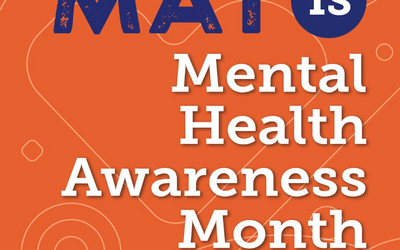
This week, learn about New Jersey's efforts to ban harmful step therapy practices, California legislation to limit copay accumulator programs, mental health resources for chronic disease patients, and more.

1. Step therapy, a practice where insurance companies require patients to try cheaper treatments before approving prescribed medications, stands as one of the most significant barriers that patients face. CDC Ambassador and New Jersey resident Rebecca Weiner wrote about this struggle in a recent blog post, highlighting the need to support legislation like New Jersey’s Senate Bill 1192, mandating prescription drug coverage for chronic illnesses without the burdensome obstacles of step therapy.
Read more here and click here to learn more about how you can share your advocacy story by joining as an ambassador.

2. CDC Executive Director Mary Kay Clunies-Ross was recently invited to guest lecture to a class of grad students from the School of Public Health at the University of California, Berkeley. Public Health (PH) 116 is a student-driven class, and Mary Kay spoke to students about healthcare policy, the role of law and regulation, and most importantly, the need for patients to be directly involved in policymaking.
Read Mary Kay's recap blog post here on our website.

3. Living with chronic diseases presents substantial financial burdens. Why add to the strain by paying twice for treatment? Read CDC California Ambassadors Caitlyn Brown and Nina Torres' recent joint blog that explores copay accumulator programs, which force patients to pay twice as much for lifesaving treatment by not accounting for copay assistance.
If you are a California resident, take action to support people living with chronic diseases like Caitlyn and Nina by emailing your legislators to say yes to AB 2180, effectively banning the harmful use of copay accumulator programs in California.

4. If you're being treated for a chronic disease such as diabetes, heart disease or any autoimmune disease, is your care team also talking to you about your mental health? They should. People who are managing chronic or complex medical conditions are also vulnerable to psychological conditions as well - frequently depression. This Mental Health Awareness Month, we invite you to explore @namicommunicate resources for invaluable support and information.
From NAMI Basics to NAMI Family-to-Family and more, discover the tools to empower yourself and your loved ones on the journey to wellness. Learn more here.

5. May is Women’s Health Month and to honor women navigating chronic diseases, we’re highlighting one of our amazing ambassadors — Erin Lambert from Hawai’i.
“By coming together, we can drive meaningful change and create a future where individuals with chronic illnesses are not only understood but also provided with the support they need. As a Chronic Disease Coalition Ambassador, I am committed to contributing to this vision, fostering a community where empathy and understanding shape policies that prioritize the well-being of those navigating the challenges of chronic conditions.”
If you’re interested in joining Erin in our Ambassador program, click here.